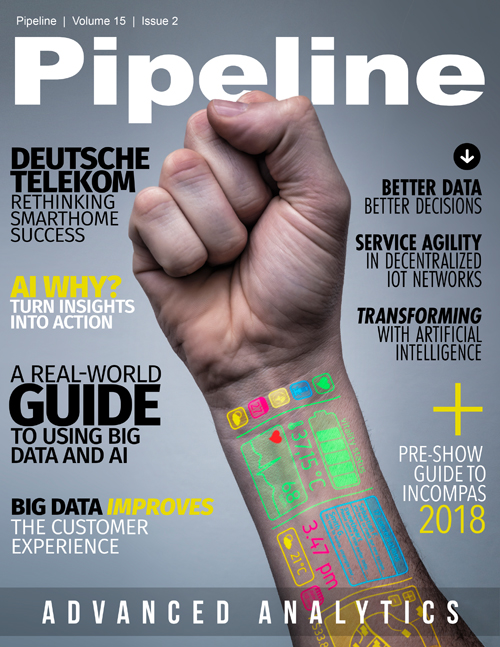No Digital Transformation is Complete Without AI
By: Krzysztof Blusz
 As brands continue to build and expand their online presences, the use of Artificial Intelligence (AI) has transitioned from something ‘nice to have’ to something essential. AI-driven solutions
play a crucial role in any business’s digital transformation. In many sectors—and certainly in the telecom sector—failing to take advantage of the power of AI means risking falling behind
competitors, disappointing customers and starting down the path to marketplace irrelevancy. The evidence is in and there’s hardly any disagreement that a digital transformation without AI is a
digital transformation that doesn't go as far or as fast as it should—put another way, it’s a digital transformation that falls short.
As brands continue to build and expand their online presences, the use of Artificial Intelligence (AI) has transitioned from something ‘nice to have’ to something essential. AI-driven solutions
play a crucial role in any business’s digital transformation. In many sectors—and certainly in the telecom sector—failing to take advantage of the power of AI means risking falling behind
competitors, disappointing customers and starting down the path to marketplace irrelevancy. The evidence is in and there’s hardly any disagreement that a digital transformation without AI is a
digital transformation that doesn't go as far or as fast as it should—put another way, it’s a digital transformation that falls short.The degree to which AI is integrated into a brand’s marketing strategy is now the standard measurement for how effective that brand’s campaigns can be. AI lifts the ceiling on possibilities and performance. This applies to elements of both online and offline strategies, since available tools allow brands to seamlessly integrate and manage data from one channel to inform decisions and strategies in another. This unified marketing approach is managed on the basis of the ability to gather and analyze the greatest currency of our age—data.
For most companies, one of the main goals behind digital transformations is optimizing the ability to gather this data and to use it in the automation of various processes. Artificial Intelligence turbocharges the pace of these transformations and offers brands the opportunity to use the data at a scale that creates exponential efficiencies.
For marketers, the primary goal of most digital transformations is to become as customer-centric as possible. The shifting technological landscape combines with fluid customer preferences to make this goal a moving target, but it's only a matter of time before brands can consistently hit the bullseye. Solutions based on Artificial Intelligence are helping to keep their aim steady and the goal in focus.
AI is the driving power behind three of the key components of the refined shopping experience that modern consumers appreciate and that digital transformations strive for.
The first is the ability to craft hyper-personalized, custom conversion paths for different customers at scale. The days of one-size-fits-all marketing messages delivered on an extremely limited number of platforms are long gone. Today’s consumers interact with brands at a long list of touchpoints across mediums unknown a generation ago. AI-based solutions build on familiar strategies of personalization and take them to the next level by allowing marketers to design complex paths based on any number of customer actions and contextual variables.
Every online customer action—and many offline events—can be instantly added to customer profiles and update progress along the conversion path. The exact complexity of the paths, made possible by artificial intelligence, responds meticulously to the preferences and behaviors of customers, who are instantly relabeled and regrouped as data is collected. Digital transformations that leverage the power of artificial intelligence use a hyper-personalized voice that drives engagement, conversions and profits.
The next edge that AI-driven solutions give to digital transformations is the ability to present the most accurate and relevant product recommendations possible. While often overlooked, this is a very important part of any successful online store. Brands devote significant resources to driving traffic to their sites, developing a smooth UX and generally providing an easy purchasing experience. Regretfully, they often fail to get the most out of each site visit by not making customers aware of products they are likely to be interested in.
Product-recommendation systems based on AI-driven algorithms, like conversion paths, are updated in real time and matched closely to demonstrated preferences and browsing and purchase histories. An extremely high degree of accuracy in such recommendations is a precondition to communicating the right message to the customer. It’s not only about making the right suggestions; it’s also about being able to create perceptions that you’re adding value to the shopping experience instead of filling the screen with offers that are irrelevant to your customers. AI makes it also possible to create an immersive experience with dynamic content in real time. No two customers will see the same selection as they browse a store because no two customers have identical behavioral histories and propensities.



















